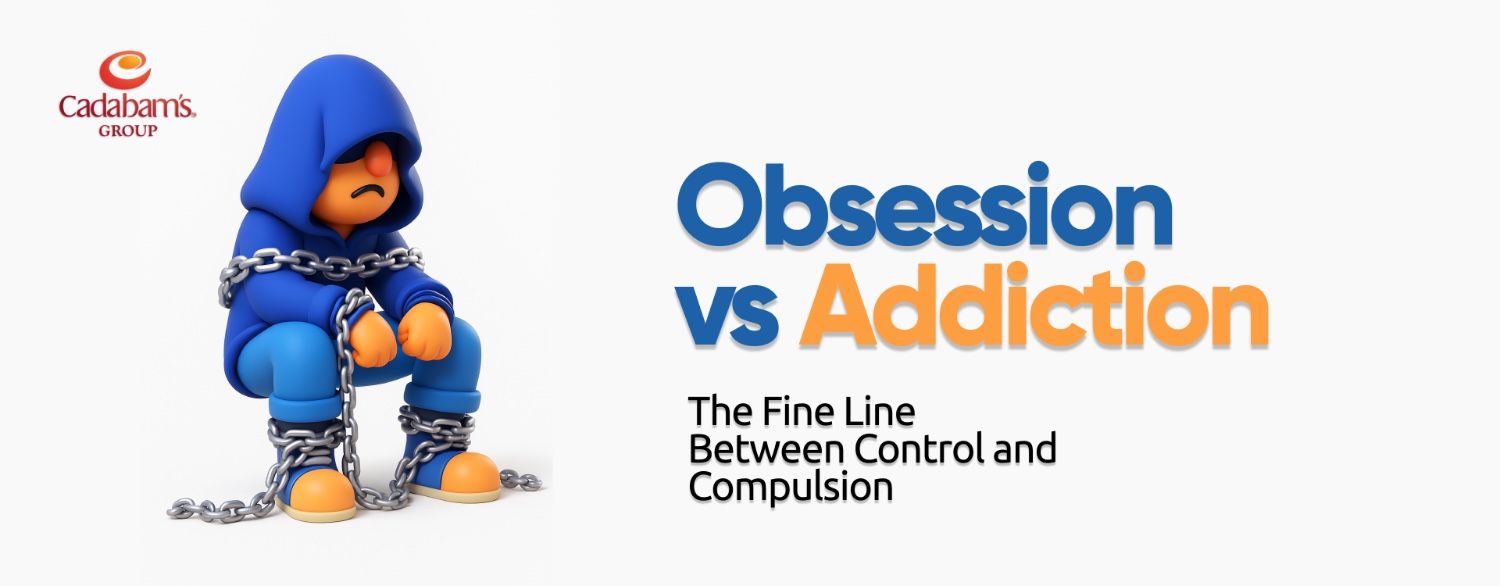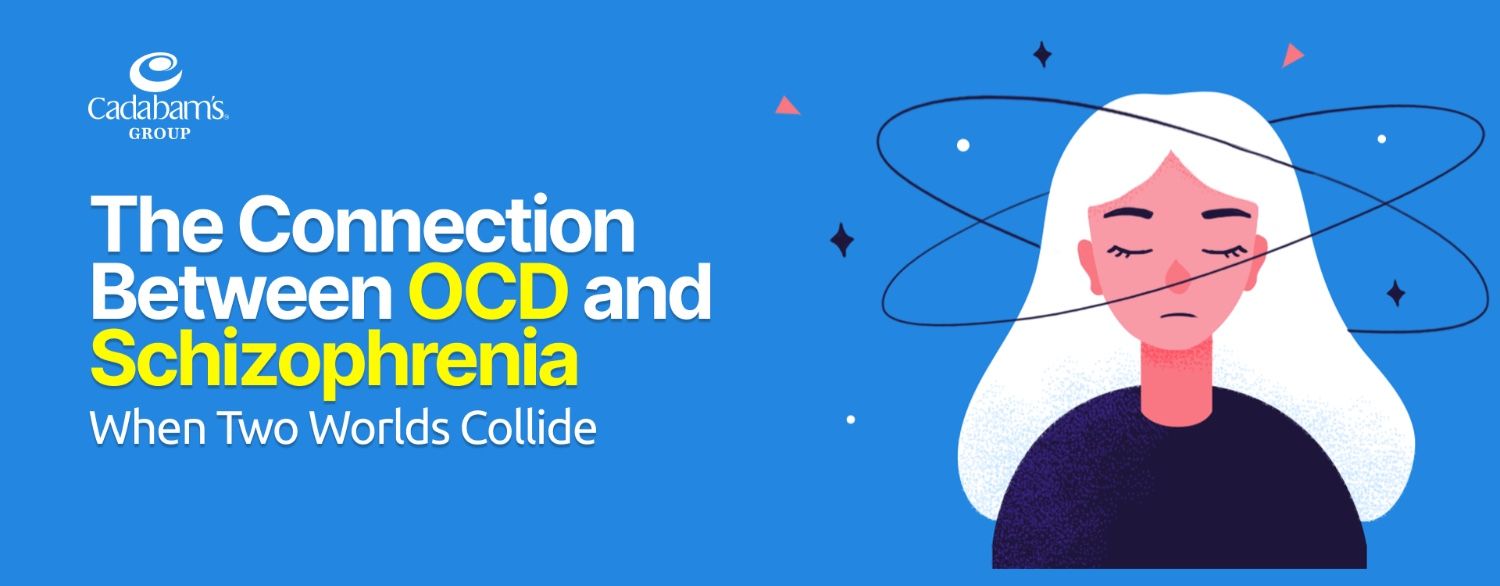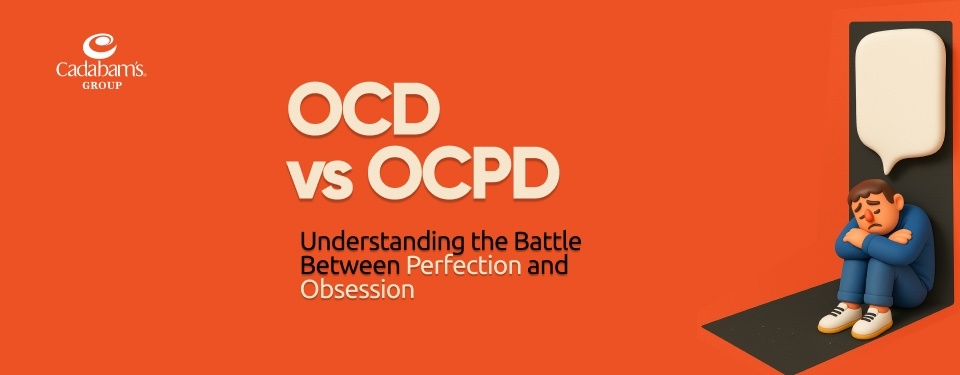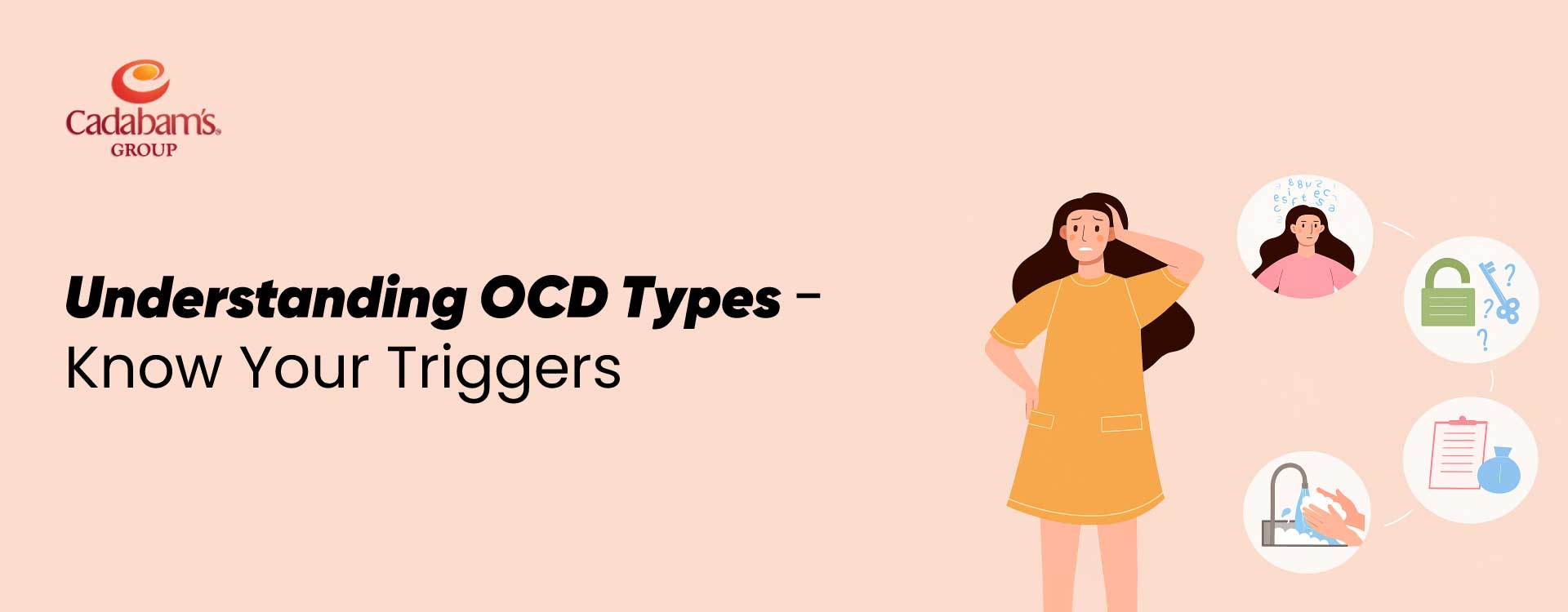Obsessive Compulsive Disorder
People suffering from Obsessive-Compulsive Disorders feel compelled to do specific tasks. These are called compulsions. These acts of compulsions offer temporary relief to the anxiety that the patient is feeling.
Some of the best approaches to OCD treatment include psychotherapy, guided therapy, and counseling sessions that help individuals to learn how to manage the condition. They also learn how to reduce the occurrence and severity of the compulsive episodes associated with OCD. There are multiple treatment options for Obsessive-Compulsive Disorder, and the percentage of people who have been able to recover after undergoing treatment is high.
Symptoms of Obsessive-Compulsive Disorder
Obsession Symptoms
- Persistent intrusive thoughts
- Fears: Contamination, harming, losing control
- Preoccupation: Symmetry or order
- Impact: Anxiety, worry, difficulty concentrating
Compulsion Symptoms
- Repetitive behaviours or mental acts
- Examples: Washing, checking, counting, arranging
- Purpose: Reduce distress or prevent feared events
- Cycle: Temporary relief, then reinforcement of compulsions
Other Common Signs and Symptoms of OCD
- Anxiety when blocked from compulsions
- Excessive time on thoughts/behaviours
- Avoidance of triggers
- Examples: Breathing/blinking control, partner doubts, handwashing, hoarding, prayer
Our Professionals
Causes of OCD
Causes of OCD involve a combination of genetic, neurological, environmental factors and life events, influencing its development and severity.
Biological Factors
Biological factors in OCD include abnormalities in certain areas of the brain, such as the orbitofrontal cortex and basal ganglia, and imbalances in neurotransmitters like serotonin. These neurological discrepancies can affect information processing, leading to the exaggerated thoughts and behaviours characteristic of OCD.
Genetic Influences
Genetic influences play a significant role in OCD, with research indicating a higher risk among individuals with first-degree relatives who have the disorder. While no single gene has been identified, the condition likely results from the interaction of multiple genes, contributing to its complexity and varying manifestations.
Learned Behaviours
Learned behaviours can contribute to the development of OCD, particularly through a process known as conditioning. If a person finds that certain actions reduce anxiety related to specific fears or obsessions, these actions can become compulsive behaviours. Over time, the compulsions are reinforced because they provide temporary relief from distress, perpetuating the cycle of OCD.
Brain Structure and Functioning
Alterations in brain structure and functioning, particularly in the orbitofrontal cortex, anterior cingulate cortex, and basal ganglia, are linked to OCD. These areas, responsible for planning, decision-making, and response to fear and anxiety, may operate differently in individuals with OCD, contributing to the disorder's characteristic patterns of thought and behaviour.
Neurotransmitter Imbalance
OCD is associated with an imbalance in neurotransmitters, chemicals that transmit messages between brain cells. Specifically, serotonin, dopamine, and glutamate levels are often found to be irregular. These imbalances can disrupt normal communication pathways in the brain, leading to the intrusive thoughts and repetitive behaviours seen in OCD.
Cognitive Processes
Cognitive processes in individuals with OCD often involve distorted beliefs about risk, responsibility, and harm, leading to excessive worry and the need to perform compulsions to mitigate perceived threats. Maladaptive beliefs and overestimations of danger can perpetuate the cycle of obsessions and compulsions, which are central to OCD's cognitive-behavioural model.
Risk Factors of OCD
Understanding the risk factors behind Obsessive obsessive-compulsive disorder (OCD) can help in early identification and prompt treatment. The following influences may increase an individual’s vulnerability to developing the condition:
- Family History of OCD: Having first-degree relatives with OCD significantly raises genetic susceptibility.
- Childhood Trauma: Experiences like abuse, neglect, or severe bullying during formative years can act as early triggers.
- Stressful Life Events: Job loss, grief, divorce, or sudden changes can precipitate obsessive-compulsive symptoms in predisposed individuals.
- Perfectionist Personality Traits: People with extreme attention to detail, control, or cleanliness may be more likely to develop compulsive behaviours.
- Co-existing Mental Health Conditions: Individuals with anxiety disorders, depression, or tics are at higher risk of developing OCD.
- Neurological Differences: Structural or functional brain irregularities may predispose individuals to obsessive-compulsive disorder symptoms.
- Early Environmental Factors: Overprotective parenting or rigid household routines during childhood can shape obsessive thinking patterns.
Recognising these risk factors early allows mental health professionals to provide timely support and design effective obsessive-compulsive disorder treatment plans.

Types of OCD
There are several recognised types of Obsessive Compulsive Disorder (OCD), each defined by specific patterns of obsessions and compulsions. Understanding these can help tailor the most effective obsessive compulsive disorder treatment for each individual.
- Checking OCD: This type involves constantly checking things repeatedly to prevent perceived danger or harm, such as ensuring that doors are locked or appliances are turned off.
- Contamination OCD: This type revolves around a fear of contamination from germs, dirt, or other pollutants, leading to excessive cleaning and washing behaviours.
- Symmetry and Ordering OCD: Individuals are preoccupied with orderliness and symmetry. They may spend extensive time arranging objects to satisfy their precision and alignment needs.
- Ruminations and Intrusive Thoughts OCD: Involves unwanted, distressing thoughts or mental images. These can include aggressive, sexual, or religious themes, causing significant anxiety and discomfort.
- Hoarding OCD: A strong urge to save items, regardless of their value, often driven by fear of losing something important.
- Relationship OCD (ROCD): Involves constant doubt and rumination about one's partner, the relationship, or feelings, even without cause.
- Existential OCD: Obsessions revolve around deep philosophical questions like the nature of reality or existence, which can lead to mental exhaustion.
- Somatic OCD: Hyperfocus on bodily sensations—like breathing or blinking—that leads to obsessive monitoring and discomfort.
- Pure-O (Primarily Obsessional OCD): Characterised by internal mental rituals instead of outward compulsions, such as repeating phrases silently to neutralise a thought.
Recognising the types of obsessive compulsive disorder is key to diagnosis and to crafting an effective, personalised obsessive compulsive disorder treatment approach.
Emergency service
Find nearest mental health center now

Rehabilitation for OCD
Rehabilitation for OCD encompasses a comprehensive approach, integrating psychological and psychiatric interventions, medication management, counselling and lifestyle adjustments. Tailored to meet individual needs, rehabilitation programs focus on reducing symptoms, improving daily functioning, and enhancing coping strategies. Support groups and educational sessions help individuals understand their condition, fostering a supportive community for sharing experiences and strategies for managing OCD in everyday life.
Pioneering OCD Rehabilitation and Support at Cadabam’s
Cadabam’s is at the forefront of OCD rehabilitation and support, offering an integrative treatment approach that combines advanced psychotherapies, medication management, and personalised care plans. Our focus on holistic well-being and recovery is supported by a dedicated team of experts, state-of-the-art facilities, and a nurturing environment. Cadabam’s provides comprehensive support, including family education and therapy, to ensure sustained recovery and improved quality of life for individuals with OCD.
If you are searching for a solution to your problem, Cadabam’s Rehabilitation Centre can help you with its team of specialised experts. We have been helping thousands of people live healthier and happier lives for 30+ years. We leverage evidence-based approaches and holistic treatment methods to help individuals effectively manage their Obsessive-Compulsive Disorder. Get in touch with us today. You can call us at +91 96111 94949.
Listen to Our Expert Insights on Obsessive Compulsive Disorder
Our centres where we treat Obsessive Compulsive Disorder
Diagnosis of OCD
The diagnosis of OCD involves a comprehensive evaluation by a mental health professional, including a detailed clinical interview and symptom assessment based on the DSM-5 criteria. Tools such as the Yale-Brown Obsessive Compulsive Scale (Y-BOCS) may be used to gauge the severity of obsessions and compulsions. Differential diagnosis is crucial to rule out other mental health conditions with similar symptoms.
Treatment of OCD
Treatment for OCD includes cognitive-behavioural therapy, specifically exposure and response prevention, alongside medications like SSRIs, offering effective symptom management.
Psychotherapy
Psychotherapy for OCD involves structured sessions with a mental health professional to address the thoughts, feelings, and behaviours associated with OCD. Techniques may include cognitive-behavioural therapy (CBT), which helps patients identify and challenge distorted cognitions and replace them with healthier ones, effectively reducing OCD symptoms and improving quality of life.
Cognitive Behavioural Therapy
CBT is a highly effective treatment for OCD, focusing on altering dysfunctional thoughts and behaviours. CBT teaches individuals to recognise and reevaluate their obsessive thoughts, confront their fears, and reduce compulsive behaviours. For personalised CBT strategies tailored to your OCD symptoms, consider exploring options with Cadabam’s.
Exposure and Response Treatments
ERT is a specific type of CBT that involves gradual exposure to the source of anxiety or obsession, followed by the prevention of the customary compulsive response. This technique helps reduce the anxiety associated with obsessions and diminishes the need for compulsive behaviours, leading to long-term improvements in managing OCD.
OCD Medication
Medication for OCD typically includes selective serotonin reuptake inhibitors (SSRIs), which help balance the brain's serotonin levels, reducing the severity of obsessions and compulsions. In more severe cases, other types of medication, like serotonin-norepinephrine reuptake inhibitors (SNRIs) may be used. Medications are often most effective when combined with psychotherapy.
Neurosurgical Treatment
In treatment-resistant cases of Obsessive Compulsive Disorder (OCD), neurosurgical options may be considered. One such procedure is gamma ventral capsulotomy, which involves targeted brain lesioning and has shown promising results in individuals with severe, unresponsive OCD. However, its use remains limited due to concerns about its invasive nature and historical bias. Another emerging option is deep brain stimulation (DBS), which uses implanted electrodes to regulate brain activity without causing permanent damage. While DBS offers a less destructive alternative with clinical support for its effectiveness, it is highly specialised and requires ongoing care, available only in select, advanced healthcare settings.
Can OCD Be Prevented?
Obsessive Compulsive Disorder (OCD) cannot always be fully prevented due to its genetic and neurological roots. However, early recognition of obsessive compulsive disorder symptoms, timely obsessive compulsive disorder diagnosis, and intervention can greatly reduce the severity and impact. Managing stress, seeking help for anxiety, and avoiding reinforcement of compulsive behaviours can also lower risk. Education and awareness play a vital role in early detection and effective support.
Subscribe to our newsletter
Find out about centres, daily updates and more about mental health

Why Cadabam's?
We have over 28 years of experience in the field of mental health. Our world-class treating team is headed by experts and pioneers who have treated and cured countless individuals. We are bringing cutting-edge technology with our expertise to build one of the best OCD treatment centers in India.
Facilities & Amenities
Frequently Asked Questions
Symptoms of OCD include Obsessive thoughts. These are thoughts that are repetitive and intrusive in nature. They can interfere in daily functioning and can make it impossible to focus on anything else. Another symptom of OCD includes compulsive behaviors. Certain behaviors help individuals manage these obsessive thoughts, and they end up performing it repeatedly. This too can cause significant distress and pain in their lives.
Medication is sometimes necessary to help individuals who are suffering from Obsessive Compulsive Disorder. This is based on the severity of the disorder. Taking medications will help the individual fight the disorder better, but sometimes the medication might present side-effects. Hence medication is used sparingly in combination with behavioral therapy and other forms of psychotherapy.
Identifying the signs of the disorder and diagnosing it is the first step to dealing with OCD. Post diagnosis, there are multiple treatment options available. This includes medication, psychotherapy which includes CBT, and exposure - response therapy as well.
Obsessive Compulsive Disorder mainly presents as a psychological and behavioral disorder. However, some abnormality has been observed in brain structures of areas that control emotional regulation in individuals who are fighting OCD.
For a large majority of people with OCD, obsessions and compulsions do exist together. But, for a few individuals either obsessions or compulsions could present more prominently.
OCD presents itself in 3 different forms. One of the types is when the individual has both obsessions and compulsions. Another type is when the individual presents mostly obsessions and the final type when they present with mostly compulsions.
Case Studies
Our Programs
Our Testmonials
Blogs you may be interested in
Helpline at your fingertips
+91 9611194949

.webp)








-min.webp)



.avif)

-min.webp)

.avif)

.avif)
.webp)

.jpg)





%20for%20OCD%20Web%20Withtext.avif)

-and-Perfectionism%20Web%20Withtext.avif)

%20Web%20Withtext.avif)




















.avif)

